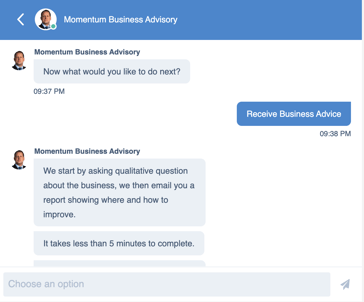When it comes to business planning, small and medium-sized enterprises (SMEs) often focus on immediate goals: profitability, growth, market share.
However, a crucial aspect of planning that is often overlooked by owner managers is Succession Planning. This is the process of identifying and developing new leaders who can replace the owner managers when they exit the business.
Here's why succession planning is an essential strategy for the longevity and continued success of SMEs.
Business Continuity
A key advantage of succession planning is ensuring business continuity. SMEs are often heavily reliant on their founders or a few key employees. If these individuals suddenly depart, it can create a significant leadership vacuum and disrupt operations. Succession planning allows for a smooth transition of leadership, minimising disruptions and maintaining stability in the business.
Retention of Knowledge and Skills
In many SMEs, a great deal of institutional knowledge and skill resides with a few key individuals. If these individuals leave without passing on their knowledge, it can be a significant loss. A well-structured succession plan includes the transfer of this critical knowledge and skill to the next generation of leaders, preserving the intellectual capital of the business.
Discover if Succession Planning is a gap with our Business Advisory Questionnaire and Free Report.
Employee Development and Retention
Succession planning often involves identifying high-potential employees and providing them with training and development opportunities. This can enhance their skills and prepare them for future leadership roles. It also signals to employees that they have a clear career path in the company, which can boost morale, increase job satisfaction, and improve employee retention.
Investor Confidence
Investors prefer businesses that have a clear succession plan in place. It shows that the business is thinking ahead and is prepared for potential disruptions. This can enhance investor confidence and potentially lead to increased investment, supporting the growth and development of the SME.
Sale or Transition of the Business
For many owner managers, a long-term goal is to sell the business or pass it on to the next generation. Having a succession plan in place can make this process smoother and more effective. It can also potentially increase the value of the business, as prospective buyers or heirs will be reassured that the business can operate successfully without the current owner.
Succession planning is a crucial aspect of business planning that owner managers cannot afford to ignore and while it requires an investment of time and resources, the benefits in terms of business continuity, preservation of knowledge, employee development, investor confidence, and successful business transition make it a worthwhile investment
Owner Mangers should therefore consider succession planning not as an afterthought but as an integral part of their long-term business strategy.
Learn more about Business Advisory Services.
Get started with Business Advisory by completing our online questionnaire, that will be used to generate your Momentum Business Report™, which identifies gaps in your business that can then be addressed via workshops, updating / creating your business plan, and beginning to implement the identified strategies.






